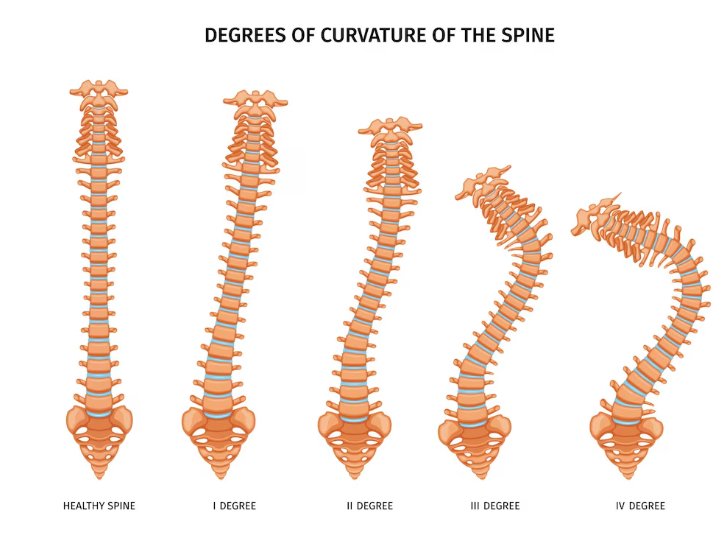Degenerative and Rheumatologic Spinal Disorders
The spine is a complex structure comprising vertebrae, intervertebral discs, ligaments, and muscles that provide support and mobility while protecting the spinal cord. Over time, the spine can be affected by degenerative and rheumatologic disorders, leading to pain, decreased function, and reduced quality of life. This article will explore the various types of degenerative and rheumatologic spinal disorders, their causes, symptoms, diagnosis, and treatment options.

Types of Degenerative Spinal Disorders
1. Osteoarthritis (OA)
Osteoarthritis is the most common degenerative joint disease, often affecting the spine. It occurs when the cartilage that cushions the ends of bones wears down over time, leading to pain, stiffness, and decreased mobility.
Symptoms
- Pain and stiffness, particularly in the lower back or neck
- Reduced range of motion
- Swelling around the affected joints
- Formation of bone spurs
Diagnosis
- Physical examination
- Imaging tests such as X-rays, MRI, or CT scans
- Joint fluid analysis
Treatment
- Pain relief medications (NSAIDs, acetaminophen)
- Physical therapy
- Lifestyle modifications (weight management, exercise)
- In severe cases, surgical interventions such as spinal fusion or joint replacement
2. Degenerative Disc Disease (DDD)
Degenerative Disc Disease is a condition where the intervertebral discs lose their flexibility, elasticity, and shock-absorbing characteristics. It commonly affects the lumbar and cervical regions of the spine.
Symptoms
- Persistent back or neck pain
- Radiating pain to the arms or legs
- Numbness or tingling in the extremities
- Weakness in the muscles served by the affected nerves
Diagnosis
- Medical history and physical examination
- Imaging tests (MRI, X-rays)
Treatment
- Pain management (medications, epidural steroid injections)
- Physical therapy and exercise
- Minimally invasive procedures (discectomy, spinal fusion)
- Lifestyle changes (smoking cessation, weight loss)
3. Spinal Stenosis
Spinal stenosis is the narrowing of the spinal canal, which can put pressure on the spinal cord and nerves. It is often caused by the degenerative changes associated with aging.
Symptoms
- Back pain
- Numbness, weakness, or cramping in the legs
- Difficulty walking or maintaining balance
- In severe cases, bowel or bladder dysfunction
Diagnosis
- Physical examination
- Imaging tests (MRI, CT scan, X-rays)
Treatment
- Pain relief medications
- Physical therapy
- Epidural steroid injections
- Surgical options (laminectomy, spinal fusion)
Types of Rheumatologic Spinal Disorders
1. Ankylosing Spondylitis (AS)
Ankylosing Spondylitis is a type of inflammatory arthritis that primarily affects the spine and the sacroiliac joints. It can lead to the fusion of the vertebrae, resulting in a loss of flexibility and mobility.
Symptoms
- Chronic back pain and stiffness, especially in the morning
- Pain that improves with exercise but worsens with rest
- Reduced range of motion in the spine
- In severe cases, a hunched-forward posture
Diagnosis
- Medical history and physical examination
- Imaging tests (X-rays, MRI)
- Blood tests for inflammatory markers (CRP, ESR) and HLA-B27 gene
Treatment
- Nonsteroidal anti-inflammatory drugs (NSAIDs)
- Disease-modifying antirheumatic drugs (DMARDs)
- Biologic agents (TNF inhibitors, IL-17 inhibitors)
- Physical therapy and exercise
2. Rheumatoid Arthritis (RA)
Rheumatoid Arthritis is a systemic autoimmune disease that primarily affects the joints but can also involve the cervical spine. It causes inflammation, pain, and potential joint deformity.
Symptoms
- Pain and swelling in the joints
- Morning stiffness lasting longer than 30 minutes
- Fatigue and general malaise
- In advanced cases, spinal instability and neurological symptoms
Diagnosis
- Physical examination and medical history
- Blood tests for rheumatoid factor (RF) and anti-CCP antibodies
- Imaging tests (X-rays, MRI)
Treatment
- NSAIDs and corticosteroids for inflammation
- DMARDs to slow disease progression
- Biologic agents targeting specific inflammatory pathways
- Physical therapy and lifestyle modifications
3. Psoriatic Arthritis (PsA)
Psoriatic Arthritis is an inflammatory arthritis associated with psoriasis. It can affect the spine and lead to pain, stiffness, and reduced mobility.
Symptoms
- Joint pain and swelling
- Morning stiffness
- Skin and nail changes typical of psoriasis
- Enthesitis (inflammation of the sites where tendons and ligaments attach to bone)
Diagnosis
- Medical history and physical examination
- Imaging tests (X-rays, MRI)
- Blood tests to rule out other types of arthritis
Treatment
- NSAIDs for pain and inflammation
- DMARDs and biologic agents
- Physical therapy
- Lifestyle modifications
Degenerative and rheumatologic spinal disorders can significantly impact an individual's quality of life, causing pain, stiffness, and functional limitations. Early diagnosis and appropriate treatment are crucial in managing these conditions and improving patient outcomes. A combination of medication, physical therapy, lifestyle changes, and in some cases, surgical intervention, can help alleviate symptoms and enhance spinal health. Regular follow-ups with healthcare providers are essential to monitor disease progression and adjust treatment plans accordingly.
Disclaimer: The information provided in this article is for educational purposes only and should not be considered medical advice. If you have any health concerns or are experiencing symptoms, it is important to consult with a healthcare professional, such as a doctor or clinic, for proper diagnosis and treatment. Always seek the advice of your doctor or other qualified health provider with any questions you may have regarding a medical condition. Do not disregard professional medical advice or delay in seeking it because of something you have read in this article.
#SpinalHealth #DegenerativeDisorders #RheumatologicDisorders #BackPain #Arthritis #PhysicalTherapy #MedicalAdvice #SpineCare #HealthEducation
What's Your Reaction?





















